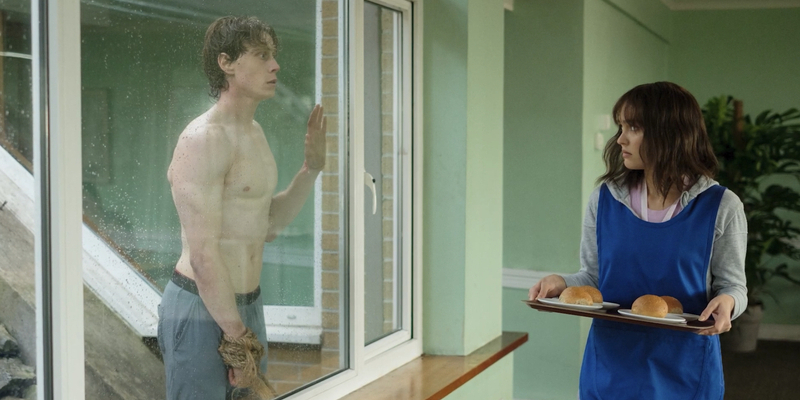
Review by
Eric Hillis
Directed by: Nathalie Biancheri
Starring: George MacKay, Lily-Rose Depp, Paddy Considine, Eileen Walsh, Fionn
O'Shea, Lola Petticrew
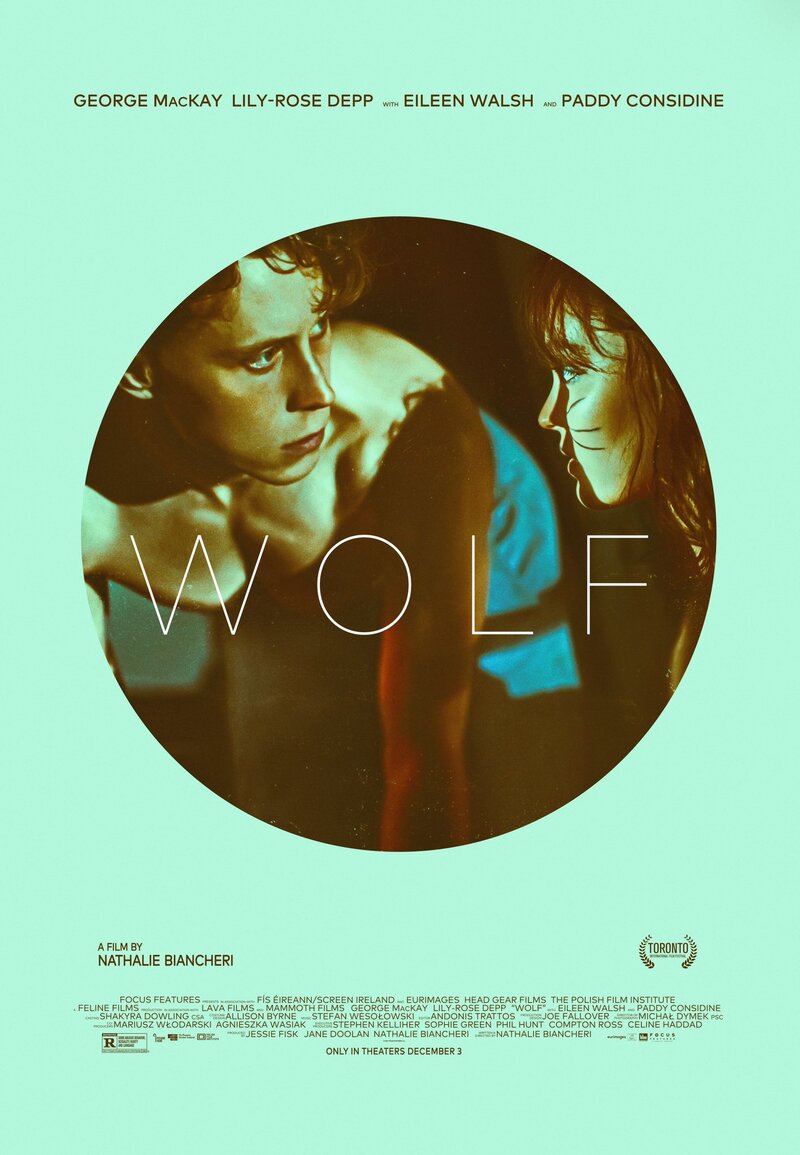
Soon after leaving college I found myself employed by a soulless
company whose offices were housed in a dystopian facility on the
outskirts of Dublin. Like many Irish companies at that time, this one
wanted to Americanise itself, which meant training its Irish employees
to stop behaving like Irish people, to stop treating our co-workers
informally and stop "taking the piss" out of each other. Those of us who
refused to become the automatons the company desired were placed on a
"training" course, which was essentially designed to dehumanise us, to
turn us from Jack Nicholson at the start of
One Flew Over the Cuckoo's Nest into Jack Nicholson at the
end of One Flew Over the Cuckoo's Nest. Part of the process involved watching a very American "motivational"
video titled 'Sometimes Even Eagles Need a Push." It was the sort of
video The Simpsons' Troy McClure might have hosted, and nobody who hadn't already been
lobotomised could take it seriously. I found it ironic that they chose
the eagle, the one animal that represents freedom and individuality, as
the creature we should aspire to, as they were essentially trying to
erase our very own freedom and individuality.
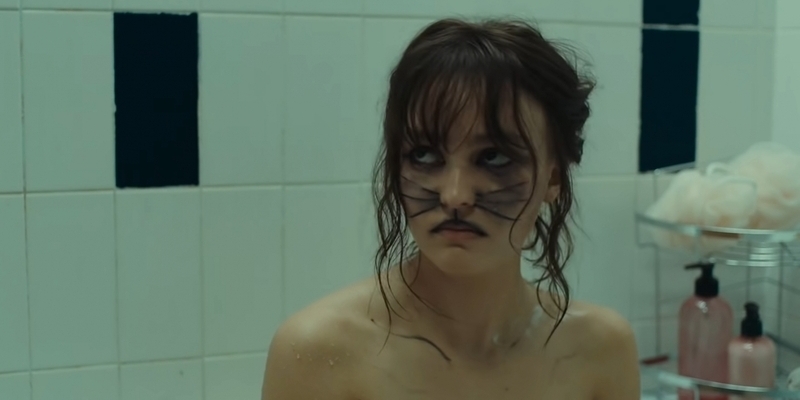
Watching writer-director Nathalie Biancheri's Wolf, I was reminded of that training course. Her film was shot in Ireland,
and in a facility very similar to the one I spent a couple of the most
miserable years of my life working in. Biancheri similarly uses animals
in an ironic way as the 'Sometimes Even Eagles Need a Push' video,
though her film is well aware of the irony.
George MacKay plays Jacob, a young man who suffers from species
dysphoria, a condition that leads humans to believe they belong to a
different animal species. Jacob believes he's a wolf, and crawls around
on all fours howling at the moon. His parents check him into an
institute that specialises in "curing" people of species dysphoria.
There he's surrounded by similar young people who believe themselves to
be animals. Among them is Cecile (Lily-Rose Depp), who believes
herself to be a wildcat. Cecile has been there so long that she has
staff privileges. Jacob and Cecile form an animal attraction and begin
to plot an escape from the institution.
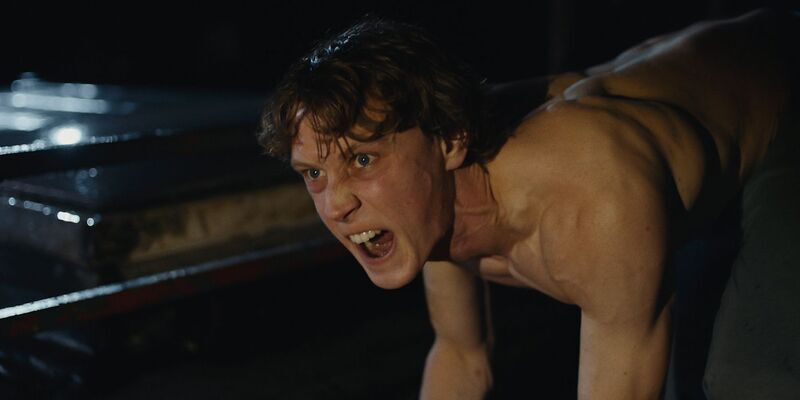
Said institution is dedicated to destroying every last vestige of the
animal within its patients. Ironically this means destroying their
humanity, for isn't it our animal nature that really makes us human? For
better or worse, giving in to our base desires and recognising we're but
another link on an evolutionary chain is what separates us from the
automaton. It's why so many employers favour employees who have become
detached from their animal heritage, because they're easier to control.
The less animalistic we become, the less human we become.
Those who run the institute force their patients to view anti-animal
propaganda, showing videos of wild animals indulging in sex and
violence. Is it a coincidence that sex and violence are the two things
so-called civilised societies have focussed most on controlling over the
centuries? Those few remaining human societies in our modern world that
base their lives around hunting and procreating are considered savages,
but there's an argument to be made that the native in the Amazon jungle
who spends his day fishing and fucking is more in touch with his
humanity than the stockbroker who spends half his day commuting into
London to stare at screens for the other half of his day.
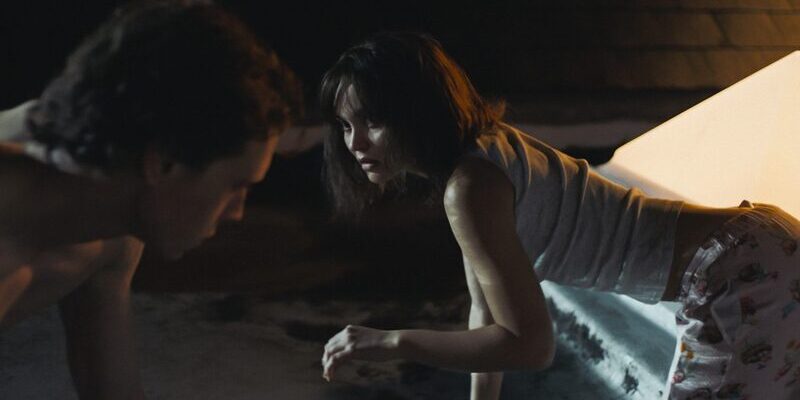
Biancheri makes the important point that to hold onto our humanity we
need to keep in touch with our animal nature, but I wish she did so in a
more engaging manner. Initially, Wolf appears to be
setting itself up as a satire along the lines of Yorgos Lanthimos's
The Lobster, but we soon realise we're not supposed to find anything amusing about
this setup. It's all played with a straight face, and when elements of
torture are introduced via a cruel therapist played by a sinister
Paddy Considine, it becomes a gruelling watch. What we're
watching is bad, the movie tells us, but that's all it really has to say
on the subject. This sort of scenario has been covered a lot recently in
various indies based around gay conversion therapy and even in the
mainstream venue of the X-Men franchise, so Biancheri's film feels a
little stale. It's a shame, as with her debut,
Nocturnal, Biancheri made a gripping film that tackles the subject of identity
and accepting where you come from. In comparison, her follow-up plays
like a lecture delivered in the sort of monotone voice that puts
students to sleep on a Monday morning.

Wolf is on UK/ROI VOD now.

